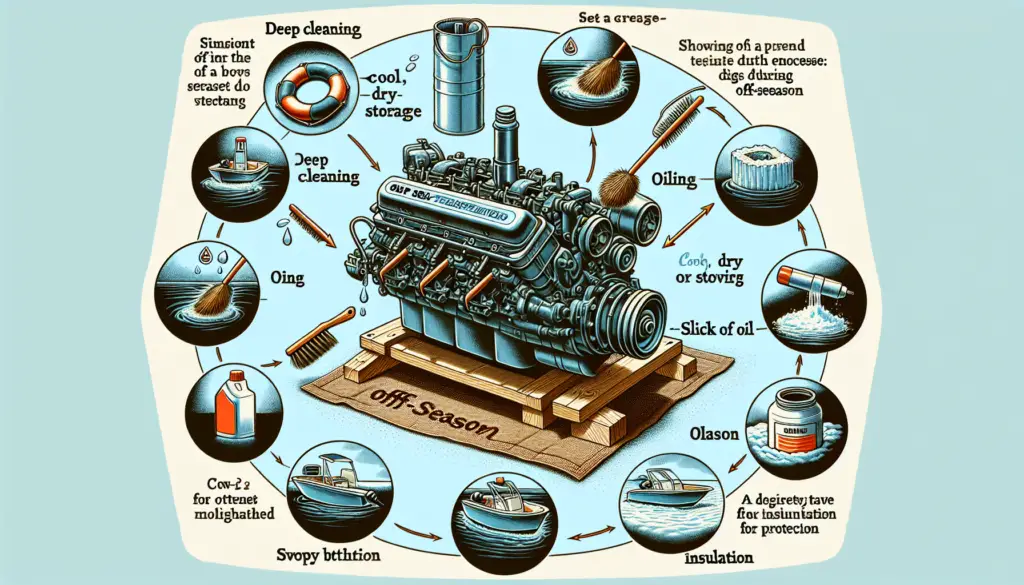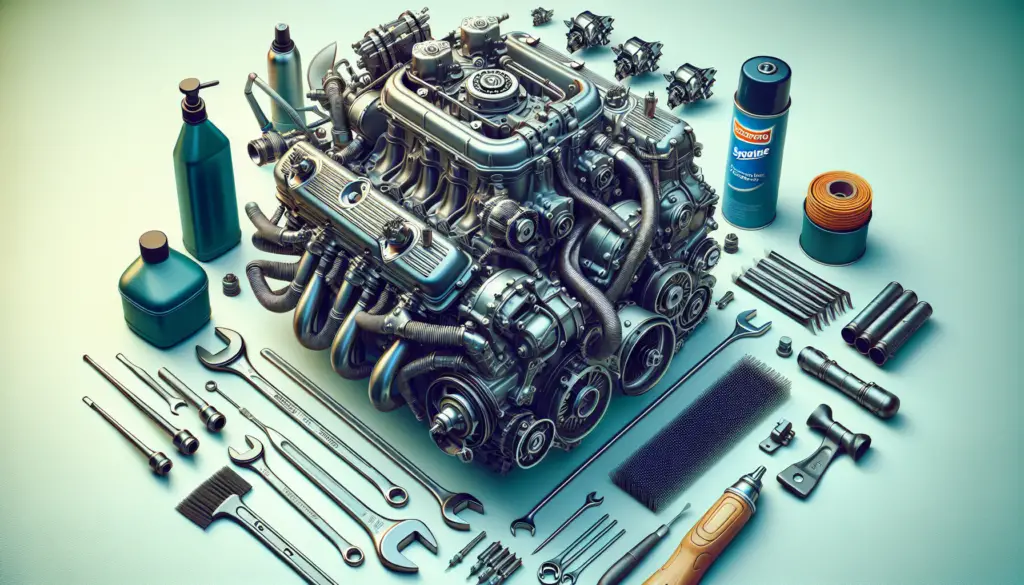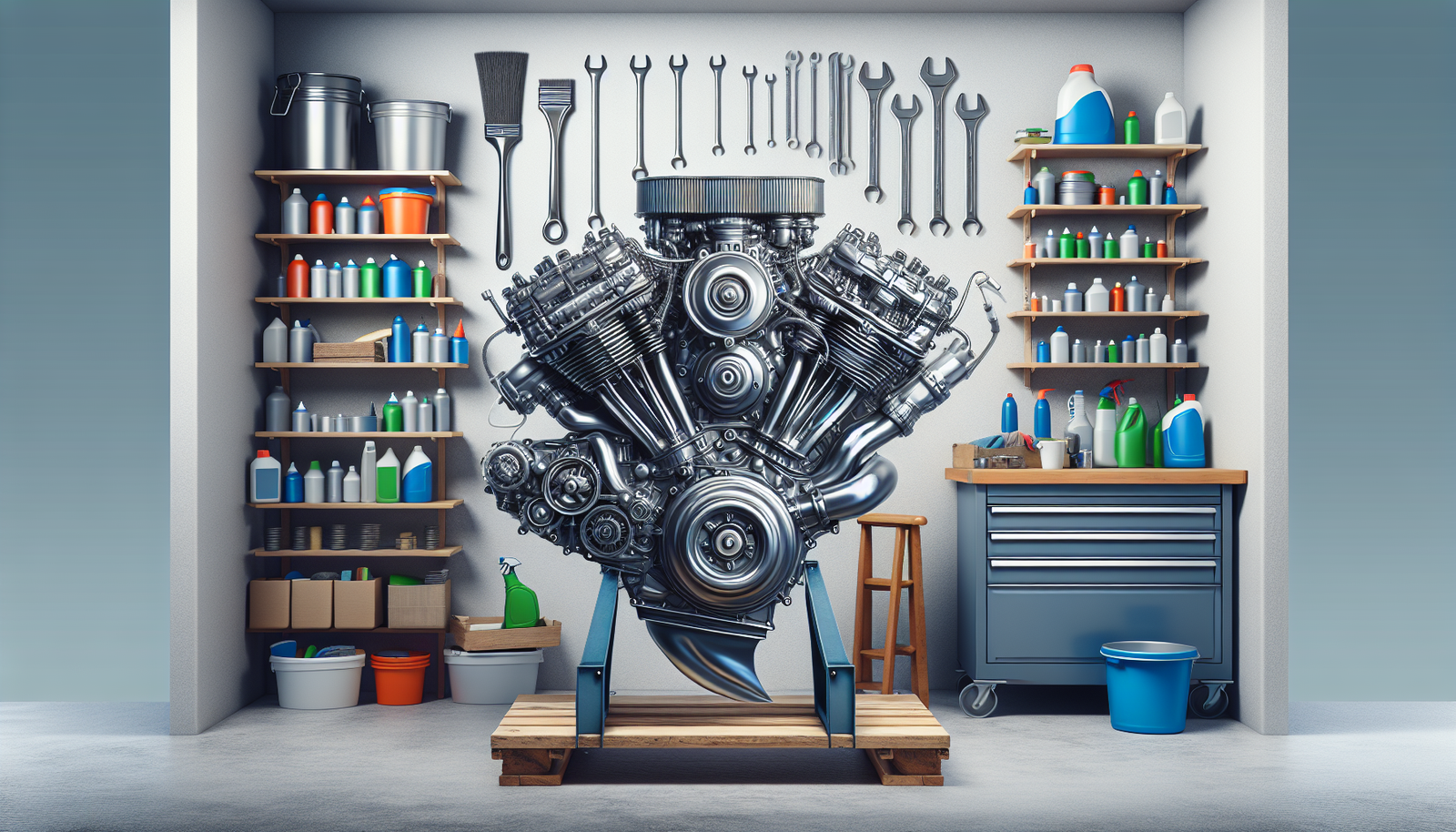You’ve spent countless hours cruising the open water, soaking in the sun, and making memories that will last a lifetime. As boating season is drawing to a close, it’s crucial to give your trusty boat, particularly the engine, the care it needs during the off-season. “Best Practices For Storing Your Boat Engine In The Off-Season” is here to guide you through this process. This article will ensure you’re well-equipped with the best strategies and tips on how to safely and efficiently store your boat’s engine when it’s not in use. Ultimately, by reading and applying the advice given, you set yourself up for a smooth sailing season when the time comes again.

Understanding the Importance of Proper Storage
Proper storage of your boat engine during the off-season is crucial to its performance and longevity. The way you store your engine can greatly impact its condition when it is time to use it again.
The effect of weather on boat engines
Changing weather conditions can take a toll on boat engines, particularly in areas where there is a significant shift between seasons. Exposure to extreme temperatures, whether cold or hot, can damage the engine parts, leading to malfunctions and needing costly repairs.
The impact of prolonged disuse on engine components
When boat engines sit idle for extended periods, the components can deteriorate. Rust can build up, oil could dry out, and seals may break down. It’s essential to properly maintain and store the engine during the off-season to prevent these issues.
Reduction of maintenance costs and troubleshooting
Proper storage will not only help maintain the engine’s performance but also cut down on maintenance costs and troubleshooting. When done correctly, you can reduce the risk of facing major mechanical issues when you pull your boat out of storage.
Preparing the Boat Engine for Storage
Preparation is key when it comes to boat engine storage. Ensuring that your engine is clean and ready will minimize damage and maintain its condition.
Performing a thorough cleanup
Before storing the engine, perform a thorough cleanup. Remove any dirt or residue that may have built up. A clean engine is less likely to have issues caused by grime and build-up.
Flushing out the engine
It’s important to remove salt, dirt, and other residues inside the engine by flushing it out. Using freshwater, run it through the cooling system to get rid of any contaminants.
Removing the battery
To prevent damage to the battery and the boat’s electrical system, remove the battery before storage. Make sure to clean the battery terminals and store it in a cool, dry place.
Changing the oil and filters
Dirty oil can cause damage to your engine. Before storage, change the oil and replace the filters. This will ensure that the engine starts smoothly when it’s time to use it again.

Choosing the Right Engine Storage
The right storage place can prevent a lot of potential problems. It should offer protection from the elements and have appropriate security measures.
Determining the ideal storage location
Choose an optimal location that is dry and free from excessive temperature fluctuation. Ideally, the place should be easy to access for regular check-ups during the off-season.
Climate-controlled storage units
If available, a climate-controlled storage unit can provide an excellent environment for your boat engine. It can maintain a consistent temperature and humidity level, helping to protect your engine.
Deciding on indoor vs. outdoor storage
When deciding between indoor and outdoor storage, consider the potential risks. Typically, indoor storage provides better protection from weather conditions. However, outdoor storage can be appropriate with the right cover and safety measures.
Securing the Boat Engine
Securing the boat engine is crucial to prevent theft and damage. Taking additional precautions can offer peace of mind while your boat is in storage.
Implementing lock mechanisms
Locking mechanisms can provide an extra layer of security for your stored boat engine. There are locks designed specifically for boat engines that you can use.
Investing in quality engine covers
Engine covers can protect your engine from dust, rodents, and other potential damage. Be sure to select a high-quality cover that fits your engine well.
Utilizing anti-theft devices
Anti-theft devices can deter potential thieves. GPS trackers, alarm systems, and even simple engine disabling switches can provide significant protection.

Properly Lubricating the Engine
Proper lubrication before storage can protect your boat engine from corrosion and damage.
The importance of lubrication during storage
Lubrication prevents the parts from grinding against each other, causing damage. It also provides a protective layer that can prevent corrosion.
Choosing the right type of lubricant
Depending on your engine’s specifications, different types of lubricants may be necessary. Be sure to understand which is ideal for your engine.
Step-by-step guide on lubricating engine parts
To properly lubricate your engine, make sure to reach all the parts that need it, such as cylinders, pistons, and bearings. Follow the manufacturer’s instructions for a comprehensive approach.
Applying Engine Fogging Oil
Fogging oil protects your engine’s internal parts during long periods of storage.
Benefits of using fogging oil
Fogging oil leaves a protective coating on the engine’s internal parts, helping to prevent corrosion and dryness.
A guide on how to apply fogging oil properly
To apply fogging oil properly, spray it into the air intake while the engine is running. The oil will circulate through the system, coating the necessary parts.

Storing the Fuel System
The fuel system also requires attention before locking down your boat for the off-season.
Treating the fuel with stabilizers
Fuel can degrade over time. Using a stabilizer can help preserve the fuel’s quality and prevent damage to the fuel system.
The need to fill the fuel tank
It’s recommended to fill the fuel tank before storage to prevent condensation inside the tank, reducing the risk of corrosion.
Draining the fuel system
If storing the boat for an extended period, consider draining the fuel system to prevent stale fuel issues.
Protecting the Engine from Moisture and Corrosion
Moisture and corrosion are the enemies of every boat engine. Ensuring your engine is protected can save you a lot of trouble.
Using moisture absorbers
Moisture absorbers, such as desiccants, can help keep the storage area dry and protect your engine from moisture-related issues.
Applying anti-corrosion sprays
Use anti-corrosion sprays on metal parts of the engine to protect them from rust and corrosion.
Investing in a dehumidifier
Depending on the storage environment, a dehumidifier can be used to maintain a suitable humidity level and minimize the risk of moisture damage.
Storing the Boat Battery
The boat’s battery also needs proper care for storage.
Determining if the battery should be left connected
Typically, it’s best to disconnect and remove the battery during storage. This prevents accidental draining and prolongs its life.
Maintaining the charge of the battery
During storage, the battery should be kept fully charged to prevent the battery from sulfating and failing.
Safe storage practices for the battery
Store the battery in a cool, dry place. Avoid placing it directly on concrete floor as it can drain the battery.
Boat Engine Storage Checklist
Before waving goodbye to your boat at the end of the season, make sure to tick off everything on the storage checklist.
Regular maintenance to be done before storage
All the necessary maintenance, such as changing the oil, cleaning, and lubricating, should be done before storage.
Space requirements for storage
Ensure the storage area is large enough for your boat and offers proper protection from weather conditions.
Follow-up checks during the off-season
Regularly check on your stored boat engine during the off-season. These checks will allow you to address potential issues before they become substantial problems.
Proper storage of your boat engine in the off-season may look like a ton of work. But believe me, you, it’s worth it. Follow these best practices, and when the new season rolls around, you’ll have a boat engine that’s ready to go, saving you time, money, and headaches.

